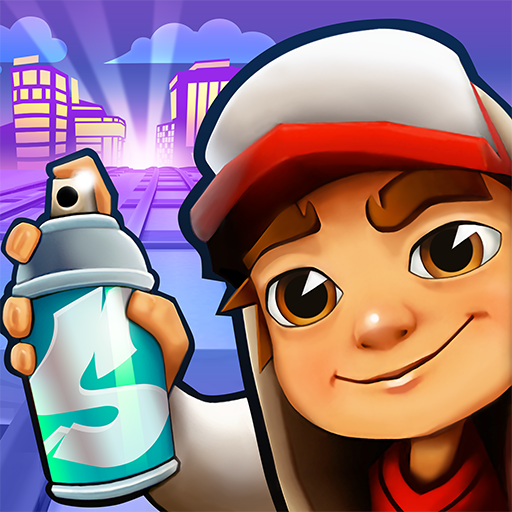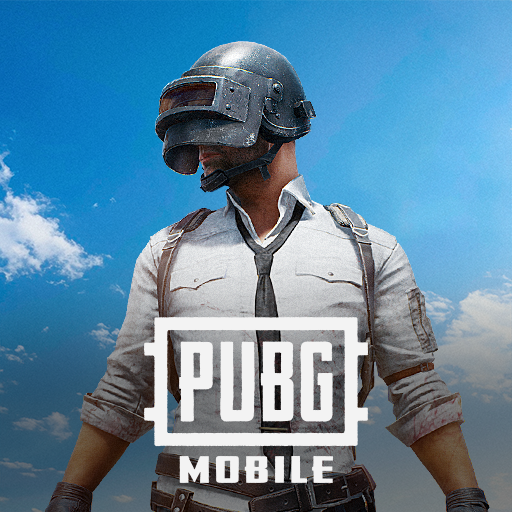Baby Panda Gets Organized - Panda organize items quickly
Teach organization skills with Baby Panda in fun mini-games.

- 9.86.00.00 Version
- 3.0 Score
- 18M+ Downloads
- In-game purchases License
- 3+ Content Rating
The mischievous mouse is causing havoc in the neighborhood once again. Let's team up with friends to assist them in tidying their rooms!
Introducing Baby Panda Gets Organized
Welcome to Baby Panda Gets Organized! With this free app, you can organize your child's room and teach them the chores you need them to do to keep the house clean. It is a simple game with fun animations, which can help children develop a good work ethic and a sense of responsibility! The app will also teach them the basic things they need to know to keep their room tidy. The app includes a number of fun animations that your children will enjoy, such as cleaning and tidying up the room, and the characters performing the chores and cleaning the house.
Exciting features:
- Engaging with everyday household items
- Completing enjoyable and intriguing tasks
- Categorizing items based on their similarities!
Empower your children by involving them in simple chores to maintain a clean living space! This is an excellent chance to boost their self-esteem and nurture a sense of responsibility, which they will appreciate in the future.
About BabyBus
At BabyBus, our mission is to ignite children's creativity, inspire their imagination, and fuel their curiosity. We develop our products from a child's perspective to encourage independent exploration of the world.
BabyBus now provides a diverse range of products, videos, and educational materials for more than 400 million fans aged 0-8 worldwide! We have introduced over 200 educational apps for children, along with over 2500 episodes of nursery rhymes and animations covering various topics in Health, Language, Society, Science, Art, and beyond.
Contact us: ser@babybus.com
Gameplay
The game starts with Baby Panda's bedroom in complete disarray. The floors are cluttered with toys, clothes are strewn about, and the furniture is all out of place. Your job is to help Baby Panda get organized, by cleaning up the room and putting everything in its proper place.
To start, you'll need to tap on objects to pick them up, and then drag them to where they belong. For example, you might pick up a toy car and drag it to the toy chest, or pick up a shirt and hang it up in the closet. As you go along, colorful bubbles will appear on the screen, providing helpful hints and feedback on what you should do next.
As you progress through the game, you'll encounter a number of different rooms, each with their own unique challenges. In the kitchen, you'll need to help Baby Panda clean up after breakfast, by washing dishes and wiping down counters. In the bathroom, you'll need to help Baby Panda take a bath, by washing her hair and body with soap and water. And in the living room, you'll need to help Baby Panda put away her toys, by sorting them into different bins and baskets.
Educational Aspect
While the gameplay in Baby Panda Gets Organized is fun and engaging, it also has an educational component that makes it perfect for parents who are looking to help their children learn about organization and cleanliness. By playing this game, children will learn important skills such as:
1. Sorting and categorizing objects into different groups
2. Identifying and matching objects based on their characteristics
3. Understanding the importance of keeping living spaces clean and orderly
4. Developing fine motor skills through tapping and dragging objects on the screen
5. Following directions and completing tasks in a sequential order
How To Get Your Kids To Do Chores (Without Resenting It)
1. Expose kids to chores as much as possible
Let them watch you cook, do the laundry or walk the dog. Let them help change a light bulb, plant herbs in the garden or help make a bed.
Basically, anything you want them to help with later on in life, be sure they're around while the activity is occurring.
"Especially during the early years, give children the opportunity to wander over and watch what's going on with the adults," Coppens says. You'll be surprised by how much toddlers and young children learn by simply observing what you do — no lecturing or explaining necessary.
This exposure also helps young children to see that chores are a social activity, Coppens says. They're opportunities to work together and be with family members — which young kids crave. Then kids associate chores with a fun, positive activity.
"This psychological integration into the family seems to be really powerful developmentally for kids learning to work together," Coppens says.
2. Think small tasks, big contributions
Offer opportunities for the child to help with the chore you're doing. Give them a task that is appropriate with their skill level. Maybe it's holding a measuring a cup while baking, moving a chair while sweeping or drying off a dish or two.
The task can be tiny, but the key part, Coppens says, is that it has to make a real contribution to the chore. It can't be a "fake" project or an action that has nothing to do with the real chore. Then everyone isn't working together for a common goal.
"In one of our studies, the middle-class, European families reported giving toddlers what we called 'mock work,' " Coppens says. For example, a mom would sweep the kitchen and afterward, she would give the broom to her young child to "resweep" the kitchen.
"The parents knew that the child wasn't contributing to chore, and pretty quickly, the kid will pick up on the same idea," Coppens says. And the kid loses out on the pride and sense of accomplishment that comes from making a real contribution.
3. Always aim to work together
A big motivating force for young children is being around their family, working on a common goal.
This motivation is lost if we divide up chores so everyone is working solo (or give kids mock work).
So for example, if you're doing laundry, be sure everyone is folding everyone's clothes. If you have the children just fold their own clothes while you fold your own, the tasks becomes more about working independently.
4. Don't force it
"Sometimes people think that to get children to do chores, like Maya kids do, the parents must be doing a really good job of controlling the kids," says Barbara Rogoff of UC Santa Cruz. But actually, the opposite is true.
"The aim is not to control the kids, but rather to develop the child's own initiative," she adds.
To do that, indigenous parents don't force kids to help. They encourage the child and offer opportunities to participate when the child is interested.
Forcing the child actually has the opposite effect, Rogoff says. It can generate resistance.
"Just like adults, kids don't like being bossed around," she says. "Asking a little kid, 'Could you help me with this?' often gets them on board more often than simply, saying 'You must do this.' "
When in doubt, talk collaboratively: "Saying to a child: 'let's do this together' sounds so much more interesting and rewarding than saying, 'I want you to do this,' " she adds.
5. Change your mindset about young children:
In the U.S., we often think toddlers and young children simply want to play, Coppens says. But the indigenous moms see a toddler coming over to them as an indication that they want to help.
The shift in mindset changes how the parent responds to the toddler's request to participate in chore, Coppens says.
"All parents are interested in supporting their kids," he says. "So if you assume that your child wants to play, then you are likely to find a better way for them to play that's somewhere out of your way while you finish the chore."
The result is a child separated from the adult activity and not around to learn about the chore — or about how to work together collaboratively.
"But if you make the assumption the toddler wants to help you, but he just doesn't have a good understanding of how to do that — then you'll try to find a way for him to help," Coppens adds. "You will help him help."
Over time, the "help" will grow in complexity. And the 2-year-old who stirs the pancake mix today could turn into the 6-year-old who makes the whole family breakfast — and feels darn good about it.
- Version9.86.00.00
- UpdateFeb 25, 2025
- DeveloperBabyBus
- CategoryEducation
- Requires AndroidAndroid 5.0+
- Downloads18M+
- Package Namecom.sinyee.babybus.organized
- Signaturee7d09f9a2ce32f15679fe7726f3bbbe2
- Available on
- ReportFlag as inappropriate
-
NameSizeDownload
-
90.30 MB
-
90.15 MB
-
88.77 MB
























too cute and still beautiful
Amazing for unorganised children
sometimes boring
kinda a loop